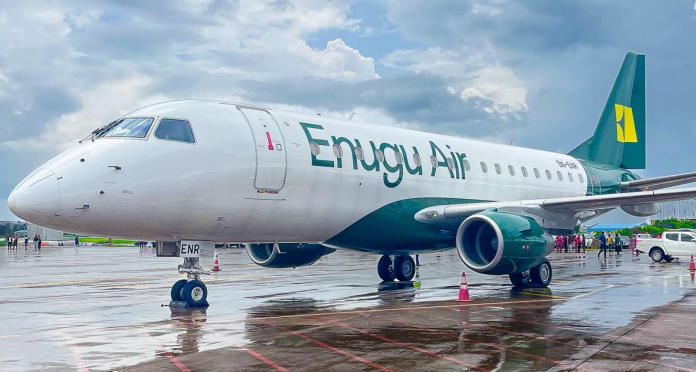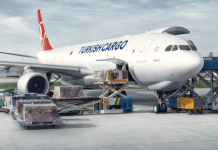A fresh scare rocked Nigeria’s aviation sector on Friday, August 16, when an Abuja-to-Lagos passenger aboard Enugu Air defied repeated safety instructions to switch off his mobile phone during taxi and takeoff. The act bore an eerie resemblance to the infamous Ibom Air saga, fuelling concerns about weak sanctions emboldening unruly passengers.
According to eyewitness accounts, the female captain halted the aircraft briefly on the runway and warned that if the passenger remained non-compliant, she would have no choice but to return to the terminal. The tense standoff ended only after fellow passengers shouted at the defiant individual until he reluctantly switched off his phone.
What made the situation more disturbing was the man’s taunt to the cabin crew: “Wetin happen for Ibom Air go happen for here now now.” His defiance invoked the unresolved Ibom Air controversy, where a disruptive passenger faced little consequence, creating what analysts now call a “dangerous precedent” in Nigeria’s aviation discipline.
Observers argue the episode underscores a systemic failure in enforcement. Celestine Ukpong, an economist and investment analyst, insisted the Nigerian Civil Aviation Authority (NCAA) and Federal Airports Authority of Nigeria (FAAN) must tighten regulations. He suggested measures ranging from compelling passengers to declare and switch off devices before boarding to even collecting mobile phones at boarding gates and returning them after landing to completely eliminate in-flight risks.
Aviation experts say that if earlier offenders had faced firm punishment, incidents like Enugu Air would not recur. Instead, Nigeria’s handling of such breaches has exposed weak institutions and inconsistency in rule enforcement. “When institutions are weak, individuals feel empowered to flout safety protocols,” one analyst noted.
Beyond aviation, critics warn the issue reflects a deeper cultural problem: Nigeria’s tendency to reward bad behaviour while ignoring discipline and excellence. The fallout from the Ibom Air case where some public figures openly defended misconduct remains a telling example of this warped value system.
Though the Enugu Air standoff ended without escalation, it has reignited urgent questions about the credibility of regulatory oversight, the culture of impunity, and whether Nigeria can build strong institutions to enforce safety in one of its most sensitive sectors.
As commentator Olaleye Olawale aptly observed: “No serious nation tramples on its own laws or chooses when to enforce them or not. Nigeria has consciously created a template where bad behaviour is rewarded, and it will haunt the aviation sector for a long time to come.”
















